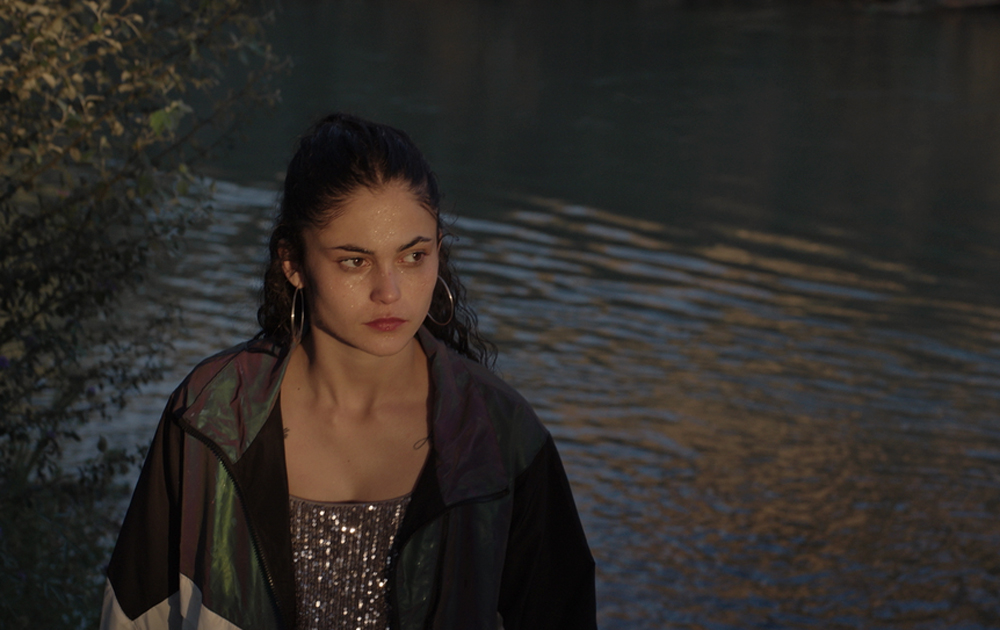Around the midway point of “El Agua,” director Elena López Riera cuts back to news footage of a devastating flood from 1987 in the small Spanish town of Orihuela. It is at once incontrovertible historical evidence and arguably the most unreal footage in the drama, with residents are being airlifted by helicopter from an unfathomable levels of water in the streets and it’s a testament to Riera that you’ve already begun to see the world in this lens through the eyes of Ana (Luna Pamiés), a young woman who is going through a sea change of her own as she contemplates her future.
The ever-present torrential terror might suggest that Ana would be inclined to leave the only place she’s ever known, but like her grandmother Angela (Nieve de Medina) and mother Isabella (Barbara Lennie) before her, there’s been an even greater fear in leaving the village on the outskirts of Madrid when local legend has it that a runaway bride was once swept up by the angry river, never to be seen again. Shrewdly, Riera and co-writer Philippe Azoury incorporate scenes of residents, shot in a traditional documentary-style, relating this myth to show how it’s hardened into fact over time being passed from one generation to the next, curiously leaving out men from these interviews, though suspicion grows that they were likely the ones to start it in the first place. Ana has long been told her house is cursed, though she’s never known why exactly and wouldn’t have much need to consider it until she beings to start seeing José (Alberto Olmo), who intrigues her as the rare person from Orihuela to travel outside the village, having been to London and back now to help his father in the orange groves that makes up much of the local economy.
“One day we’ll both leave together,” José promises Ana in the thick of a summertime infatuation, but as seasons change, Ana is left to wonder whether her boyfriend is truly serious about relocating and in any idle time she’s not with him, she’s either with friends or the generations of women in her family before her who all have regrets about sticking around for too long. “El Agua” evokes a strong sense of place as Riera and crew make the feeling of mysticism around the area as tactile as any physical element, drawing on the community’s more distinctive aspects of everyday life such the racing of painted pigeons, which reminds of the chariot sequences in Clio Barnard’s similarly striking narrative debut “The Selfish Giant,” and getting creative with how sound will occasionally drift from one scene into the next to transcend spaces its characters can’t.
It is fitting that a rave opens the film, only to reveal that any freedom Ana has letting loose is temporary when the partying happens only steps away from her home and throughout “El Agua,” Riera provocatively considers movement psychologically rather than physically, able to lean on Pamiés for a small expression of how her thinking has evolved or showing how a belief gains traction among a community as an unquestionable totem. On one hand, the momentum of nature can’t be denied, but when looked at through the Riera’s unique perspective, one can start to appreciate how powerful it can be when the tide turns inside someone’s mind.
“El Agua” will screen again at Directors Fortnight on May 20th at 5:30 pm at the Theatre Croisette, May 21st at 10 am at the Cinema Le Raimu and 7 pm at the Cinema Alexandre III and May 23rd at 11:30 am at the Cinema Les Arcades/Salle 1.




